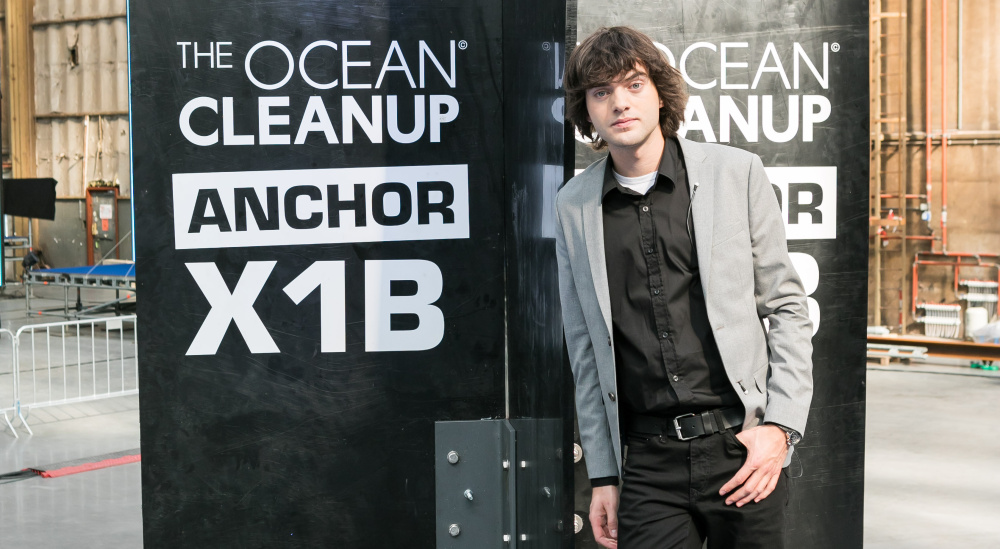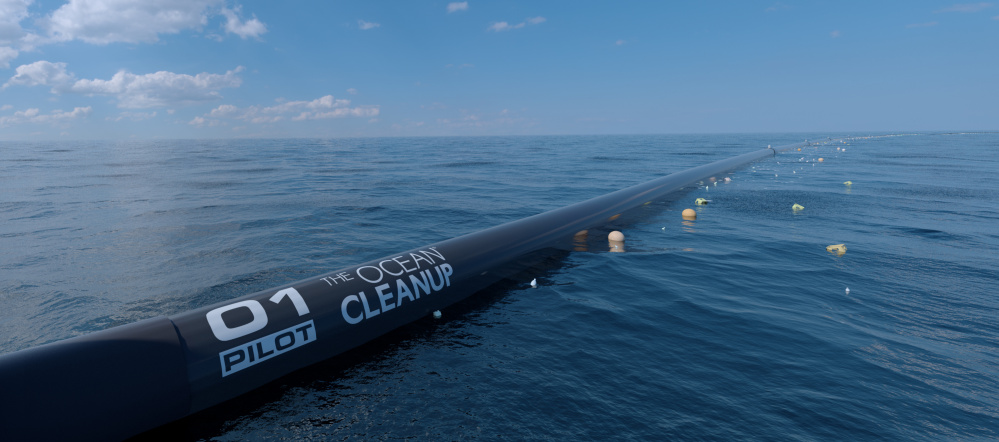UTRECHT, Netherlands — A Dutch foundation aiming to rid the world’s oceans of plastic waste says it will start cleaning up the huge area of floating junk known as the Great Pacific Garbage Patch within the next 12 months, two years earlier than planned.
The Ocean Cleanup aims to use long-distance floating booms that act like coastlines to gather plastic as it drifts on or near the surface of the water while allowing sea life to pass underneath. The plan originally was to anchor the barriers to the sea bed with a system used by oil rigs, but the organization said Thursday it now will use anchors that float beneath the water’s surface, making it much more efficient.
The Ocean Cleanup, founded by Dutch university dropout Boyan Slat, announced that testing of the first system will start off the U.S. West coast by the end of the year and barriers will be shipped to the Great Pacific Garbage Patch between California and Hawaii in the first half of 2018, two years ahead of the organization’s earlier schedule. The patch is a huge area of the ocean where swirling currents concentrate the trash.
“At the ocean cleanup we always work with nature. So instead of going after the plastic, we let the plastic come to us, saving time, energy and cost,” Slat, a shaggy-haired 22-year-old, told The Associated Press.
Floating barriers concentrate the plastic garbage at a central point where it can be fished out of the water and shipped back to dry land for recycling.
The organization discovered that the barriers are more efficient if they are allowed to slowly drift instead of anchoring them to the sea bed.
Free-floating barriers begin to act like the plastic they aim to snare, so “the cleanup systems will automatically gravitate to those places where most plastic is,” Slat said. “And that now causes the efficiency to be a lot higher because there is just more plastic in front of these systems and therefore we can now clean up 50 percent of the patch in just five years’ time.”
The innovative system is the brainchild of Slat, who decided to dedicate himself to cleaning up the world’s oceans after he went scuba diving in Greece at the age of 16 and saw more plastic bags than fish.
The young entrepreneur’s system is making waves among America’s super-rich philanthropists. Last month, his foundation announced it had raised $21.7 million in donations since November, clearing the way for large-scale trials at sea. Among donors were Salesforce.com CEO Marc Benioff and PayPal co-founder Peter Thiel.
Copy the Story LinkSend questions/comments to the editors.




Success. Please wait for the page to reload. If the page does not reload within 5 seconds, please refresh the page.
Enter your email and password to access comments.
Hi, to comment on stories you must . This profile is in addition to your subscription and website login.
Already have a commenting profile? .
Invalid username/password.
Please check your email to confirm and complete your registration.
Only subscribers are eligible to post comments. Please subscribe or login first for digital access. Here’s why.
Use the form below to reset your password. When you've submitted your account email, we will send an email with a reset code.